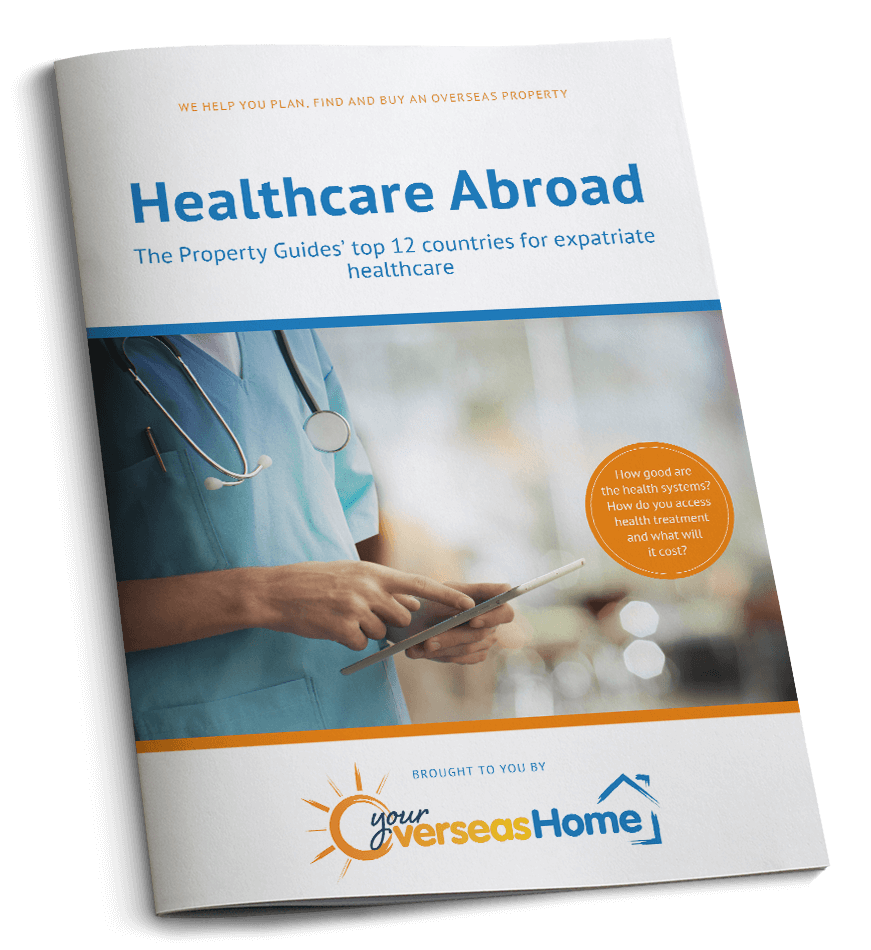From the cuisine to the culture, to scenery that encompasses Alps, river valleys and wild coasts all dotted with charming villages and beautiful homes, it’s easy to see why anyone would want to move to France. If you’re ready to take the plunge, you may have a million questions going through your mind. Beginning with, is it easy to move to France from the UK after Brexit?
The good news is, just like for North Americans, Australians, and many others, moving to France as a ‘third-country national’ is still possible. But to make your dream a reality, you’ll need to do some research and planning.
To make the process easier for you, we’ve put together this ultimate guide on how to move to France from the UK. So, read on and take the first step to finding your new home in this wonderful country.
In this guide, we’ll cover:
- French visas and residency
- Getting a house and mortgage for France
- Organising finances for your move to France
- French local property taxes
- Removals from the UK to France
- French healthcare system
- Utilities
- Cars and driving permits
- Career
- Education
- Pets
French visas
The process of getting a visa and moving to France from the UK after Brexit is slightly more complex these days, so it’s important to make sure that you’re following the latest rules and regulations. Currently, UK citizens – just like other third-country nationals – require a long-stay visa for France if they are staying in the country for longer than 90 days in every 180-day period. These types of visas last up to a year but are renewable.
Types of French visas
There are many different types of visa available, the most common of which is the French long-stay visa — la Visa Long Séjour valant Titre de Séjour (VLS-TS). Which kind you choose to apply for will depend on your individual situation as well as financial status, as there are different versions including those for salaried employees, self-employed individuals, and those setting up a business.
Most of the new British applicants will be applying for a visa that allows them to retire to France, the visa de long séjour valant titre de séjour – visiteur.
One vital issue for many new arrivals in France is that in the past they could semi-retire to France. For example, they may have continued a certain amount of freelance or consultation work for their previous employer in the UK, or they may run a gite in France. However, this is not allowed on the visiteur version of the VLS-TS. Another visa option is the long stay work visa, which is ideal if you plan to continue working while in France or find a job after you move.

You’re on your way! Moving to France (olrat / Shutterstock.com)
French visa application
You’ll need to apply for a French visa from the UK at one of the visa application centres in London, Edinburgh, or Manchester, and you will likely be invited to attend the centre in person during the process. If you’re moving with your family, each person on the application aged 12 and over will have to attend. French long-stay visa processing times can vary. You cannot apply for one more than three months in advance, but it’s a good idea to not leave it too long after this period has started to avoid backlog.
To process your French visa application, you will provide the following:
- Your passport, which:
- Must have been issued within the last 10 years
- Must have at least two blank visa pages
- Two standard passport photos
- Any supporting documents required for the reason for your trip (use the visa wizard on the France-Visas official site to find out what these are for your desired visa category)
The consulate staff will check your file, collect the fees, take your photos, fingerprints, passport, and supporting documents. This shouldn’t take more than about 20 minutes. The documents will then be forwarded to the consulate for processing, and you can track their progress online.
The current total cost of a French visa application is €99, and bear in mind that you won’t get this money back if your application is unsuccessful. To keep up to date with the latest information on visas, make sure to checkout the official French government’s France-Visas site.
Securing a French visa
To secure your visa you will need to prove you will have an income of around €1,200 to €1,300 per month, which is equivalent to the minimum wage in France. You also have the option of demonstrating you’ve built up enough savings to qualify, so you won’t be considered a drain on the state. It’s important to note that as long-stay visas are only valid for up to one year, people looking to move to the country permanently should eventually apply for residency.
The 90-day rule
If you’re planning to live between France and the UK, you can enter without a visa or other paperwork — you only need a passport with at least six months on it before it expires. This is a result of the 90-day rule that allows British citizens to enter the Schengen Area freely for up to 90 days in 180 days, even after Brexit. Once the 180-day period is over, you can commence another 90-day visit if you wish.
This rule doesn’t just apply to France, however, as the 90 days begins as soon as you enter a Schengen-zone country. This means you can’t visit France for the full 90 days and then move on to Italy for another 90, for example.
The short-term 90-day visa is typically issued for tourism, family visits, or business trips, and does not give you the right to work. You will be able to make viewing trips to France under these conditions if you’re looking to buy property or move there. Typically, you will be asked about the purpose of your trip at passport control.
French residency
As a British national living in France, you have not previously needed to apply for residency to retain your EU rights. However, if you’re planning on living in France full-time, or more than three months in every six, you will eventually need to do a French residency application.
You can apply for a permanent French residence card (carte de residence) after living in the country for five years. These permits are renewable and last up to five years. In terms of French residency requirements, you will need to provide evidence that you’ve been living in the country for the duration of this time. However, if your spouse is a French national or they have a permanent residence card, you can apply after just three years instead.
After living in France continuously for five years, you also have the option to apply for French citizenship. To get this citizenship, you will need to prove that you’re integrated well within a French community and that you have a good understanding of French culture. Make sure to check out our guide to understanding French culture and etiquette to learn more.
While applying for citizenship can come with extra costs and take more time, it also comes with a range of additional benefits too, including being able to stay in the country for as long as you wish and having access to a French passport.
Getting a house and mortgage in France
Buying your new French property will undoubtedly be at the top of your list of priorities — you can read our complete guide to buying French property for more advice. And, if you’re not a cash buyer, getting a mortgage in France is one of the key parts of the purchase process. The rules for both processes are not dissimilar to the UK, but it’s important to be fully prepped to make moving to France go as smoothly as possible.
The house buying process
People looking to move to France after Brexit may be concerned that the house buying process has become much more complicated. The good news is that unlike applying for French visas and residency, there aren’t any extra restrictions now that we’re out of the EU for buying property in France.
Once you’ve explored the selection of properties for sale in France at Property Guides and narrowed down your search, dedicate a trip to viewing them with your estate agent so you can see it in person. When you’ve chosen your dream property and you’ve viewed the compulsory diagnostic report (Dossier de Diagnostic Technique), you can make the first step of the purchase by making a verbal offer and signing the preliminary contract (compromis de vente). After this step, simply pay the deposit, sign the final deed (acte de vente), and the property is yours!
Just like buying a house in the UK, purchasing your new home in France will be a long process so make sure to be prepared for this. Remember, for a more comprehensive breakdown of the house buying process, you can check out our guide to buying a property in France.
Finding the right mortgage in France
There are a number of mortgage options (prêt immobilier) available in France. On the whole, conditions have been much more stringent since the global recession. In France, lenders set the interest rates, which are influenced by the Euribor (European Interbank Offer Rate).
As in the UK, you’ll find fixed-rate and variable-rate mortgages. It is still advisable to renegotiate fixed-rate mortgages with time to make sure you’re always getting the best rate. Generally, a mortgage in France will be for 20-25 years, sometimes extended up to 30-35 years.
What are the rules for a mortgage in France?
Broadly speaking, your debt ratio in a mortgage cannot exceed 33% of what you earn. Sometimes, you will find that with incomes over €60,000, banks will be progressively more willing to raise this percentage.
In most cases, you will be required to have a prêt hypothécaire, which simply means that your house will stand as a caution. This will have to be registered by a notaire (notary). This will then be in the publicité foncière, held in the conservations des hypothèques — a bit like a land registry. To do this, you’ll need to pay the notary’s fees and the taxe de publicité foncière. The caution cannot last more than fifty years and normally comes to an end without you needing to do anything when you have fully paid off your mortgage.
How are the fees calculated?
The total fees for a property are divided into three parts.
- The droits d’enregistrement are essentially the taxe de publicité foncière mentioned above – either 4.5% or 3.8% of your property.
- The second part is variable and is used by the notary to pay any third parties responsible for producing documents, such as from the land registry or surveyors’ documents.
- Finally, you have the émoluments – the notary’s own fees. These are fixed according to the property price, with different percentages in different bands.
Getting help for your French mortgage
One of our best recommendations for obtaining a mortgage in France is to contact an overseas mortgage broker who will be able to talk you through current offers. By using someone experienced in helping British buyers purchase in France, you’ll make sure you don’t miss any necessary steps – or find yourself on the wrong foot and paying more than you need to.
You will need to make certain you are clear about what your monthly repayment figure will be. This will be crucial to factor in when you’re budgeting for your new life in France. You need to make sure you choose a mortgage that you will be able to afford, without stretching yourself financially.
Consider your currency exchange requirements
An absolutely crucial additional step when buying overseas, as opposed to at home, is to take into account the currency markets. The exchange rate changes every day, with sometimes ups and downs several times in one day. This means that, between putting in an offer and paying a deposit, or during the period between mortgage repayments, the pound could drastically lose value. If you’re not prepared, you could lose thousands.
That’s why we partner with Smart Currency Exchange. As the UK’s only currency specialist in property purchases, and with over 1,000 5* reviews on TrustPilot, you’ll be in safe hands. They will use techniques such as forward contracts – where they can lock in an exchange rate for 12 months, so you always know exactly what you’re paying. Your named personal trader will stay with you throughout the process. They don’t work off commission, so you can be sure of receiving expert, fair advice.
Organising finances for your move to France
Once you’ve found your dream house, it’s time to start financially preparing to move to France. There are a number of different factors to consider, from your savings and pensions to your everyday bank account.
Opening a French bank account
Opening a bank account is one of the first things you will need to do when you plan to move to France. As in the UK, there are several well-known high street banks such as Societe Generale, Credit Agricole, Caisse d’Epargne, and the post office also offers a very good banking service: La Banque Postale. One option proving very popular is to select a service that has fully bilingual staff. You can usually open an account online and receive your cheque book and card by mail.
If you’re with a bank that has branches in France, this can be pretty straightforward as you can often simply transfer to a new French account. But if you’re starting an account from scratch, you’ll need to visit the bank in person for an appointment, and bring your passport for identification, proof of address (your property deed should suffice), and proof of residence status. In general, banking laws are stricter in France, so it is wise to keep within your limit!
You may be able to apply for an agreed overdraft but do remember that going overdrawn without prior agreement is an offence in France – so don’t risk it! Also, many overdrafts are not life-long but have a limited time in which they can be used in each month.
Once your account is processed you will have a debit card and cheque book. You can have a joint account and the title will be “M. ou Mme” meaning that either of you can sign a cheque. Your card will have a daily limit for withdrawals from your own bank (any branch) and another smaller limit for withdrawals from any other bank ATMs, which can be increased upon request.
One of the best things about French banking is that unlike the UK, you will have your own bank manager, thus giving it a much more personal touch. Don’t be shy about asking him or her for advice: they are used to us Brits coming over and opening accounts in France!
Opening a French savings account
For your savings, you may want to consider closing your accounts and putting the money into French savings accounts instead. This is because UK savings are a lot different to French savings. For example, while ISAs are tax-free in the UK, they are fully taxable in France.
It’s worth speaking to a financial advisor before, during, and after your move to France to ensure that your money is in order. Before you make the move, you can use a financial advisor from the UK. However, once you move, you must use one who’s registered in the country you are residing in as UK financial advisors cannot give advice to EU domiciled clients post-Brexit.
Moving to France with a pension
You should also look into claiming your pension in France if you are near retirement or have already retired. An overseas pension is likely to be more favourable than keeping your UK pension. However, if you move to France, your state pension will continue to grow as if it’s still in the UK. This was agreed as part of the Withdrawal Agreement.
If you have a SIPP (Self-Invested Personal Pension) in the UK, you will not be able to contribute to this once you become a non-resident. For more advice on moving to France from the UK with a pension, check out our guide to claiming your UK pension in France.
French property taxes
There are a number of different taxes that you’ll have to pay while living in France. While not all of them will apply to you, it’s a good idea to get to grips with the three main ones.
French property tax
The main two taxes in France for property are the taxe foncière and the taxe d’habitation. Together, these taxes are the equivalent to UK Council Tax. The former is paid by the landlord and the latter by the occupier, whether that’s a landlord or a tenant. Largely speaking, these taxes cover local services such as street cleaning, waste collection and municipal lighting.
La taxe foncière
This is literally a ‘property tax’. You are liable for the taxe foncière as the owner of the property, whether you live there or rent it out. It is the more expensive of the two, generally speaking. The amount will vary according to where the property is located, as well as the cadastral value (the notional rental value). The local authority decides on the amount, meaning that some regions can be much more expensive than others.
The cadastral value is reviewed every year, so the amount due will often change. It is calculated on the buildings and land involved, and the owner is responsible for keeping information on any improvements, additions to the property and so on, up to date. The addition of a swimming pool, for example, or the change of use to a gîte will also affect the amount.
This tax is payable each October 15. Late payment can cause an increase of 15%. It is important to let the tax offices know as soon as you purchase your French property. There have been cases in the past of the first bill going to the UK address of new owners, meaning that they don’t receive notification of it in time – and so end up paying it late and receiving a fine.
Declaration d’Occupation & Tax d’habitation
France recently abolished the taxe d’habitation for all primary residences in France. Now, it is only required by those with second homes in France and vacant properties.
The Declaration d’Occupation form must be completed by all French property owners, regardless of whether it’s your primary or secondary residence – even non-residents have to fill it out. It is designed to determine which homes are being used as primary residences.
This is a one-off form, meaning that you only have to fill it out once. You are only exempt from the form if you own a commercial or business property in France, this includes holiday homes that you rent out – but only if it’s a registered home business. If you’re uncertain whether you qualify, please contact your local tax office. Better to check than to be fined €150.
Impôt sur le revenu
Impôt sur le revenu is simply the equivalent of income tax. If you are a resident of France, you will pay this tax. However, if you have a non-domicile status, you will only pay this tax if your income is from a French company. Because of the double taxation agreement between France and the UK, this means that it is possible to work for a UK company and pay income tax just in the UK.
Just like the UK, France has the PAYE (Pay-As-You-Earn) system in place (and has done since 2019), so tax is automatically deducted from a pay cheque before you receive it. The amount you have to pay for income tax depends on your salary. The income tax bands tend to change slightly year on year. To give you an idea of the rates, the following are the tax bands for 2022:
| Tax Band | Tax Rate |
| Up to €10,225 | 0% |
| €10,226–€26,070 | 11% |
| €26,071–€74,545 | 30% |
| €74,546–€160,366 | 41% |
| €160,367 and over | 45% |
If you pay income tax in France, you will also need to complete an income tax return. This must be done online if you have internet access, and can be done on paper if you don’t. The deadline for these forms changes, but it tends to be sometime between the middle of May and the middle of June.
Other types of tax
There are a few other types of tax which you may be eligible for, including:
- Contributions sociales: This type of tax is similar to French income tax. They are paid in arrears and calculated based on your tax return.
- Impôt de Solidarité sur la Fortune (ISF): This is a wealth tax, and is only payable for taxpayers who have wealth of €1,300,000 or more.
- Contribution Foncière des Entreprises (CFE): This is business tax paid annually by businesses who have a turnover of over €5000.
- Impôt sur les plus values: This is capital gains tax, and is paid after the sale of buildings and land, or shares. The sale of French property has a flat rate of 19%.
Paying taxes in France
If for any reason, you default on payment of taxes in France, you will be given a fine of 10% of the due tax by the local authority. If you refuse to pay, French law allows the tax authority to take the money directly from your bank account.
There are a few exemptions and discounts available. Some new builds may be exempt from both taxes for the first couple of years. Reductions in the taxe foncière can be allotted for people aged over 75, those with disabilities and students – as long as the property is their main residence. Be aware, however, that this will only fly if you have submitted a tax return in France declaring your income.
Total exemption from the taxe d’habitation may be given to those aged over 60, as long as they are not eligible for wealth tax and are on a low income. It is best to enquire at the local tax office about any of these reductions.
Sending money for taxes in France
If you’re also paying your taxes from a UK bank account, you run the risk of volatile exchange rates changing. This could consequently mean you pay more than you expected. Find out how to control the risk in our article on making regular transfers to France.
Removals from the UK to France
As soon as you know that you are moving to France, you will need to consider the most suitable way of organising removals. Given the relatively small distance between the two countries, you have a few choices here: you could use a British Association of Removals (BAR) registered moving firm, a small ‘man with a van’, or even take the option of renting a van yourself.
Moving possessions to the UK from France post-Brexit
Moving personal belongings from the UK to France after Brexit is a little more time consuming thanks to some extra paper work, but it still shouldn’t be too difficult. The good news is that you won’t need to pay tax on importing your goods into France if you’re planning to live there, as long as you’ve been living in the UK for a year or more. In order to prove this, you’ll need some sort of proof of your residence in the UK, such as a council tax bill. You will also need proof of residence in France, such as the deed to your new property.
Another important piece of paperwork you’ll need is a signed declaration of duty-free entry to France and two copies of an inventory of the goods you’re importing, with the second-hand value of all the listed possessions.
Choosing the right option for you
The key to choosing the right option for removals to France comes from planning early. You need to make sure you know exactly what you want to take with you.
Assess the costs of each option considering this, as well as the amount of time you will need to spend packing goods if you do choose to do this yourself. It can be very difficult to know exactly how much space your goods are going to take up. Even if you aren’t taking the heaviest goods, you still might find that everything takes up mor space than you think. If you do decide to take the ‘DIY’ removals to France option, perhaps renting a larger van than you think you need could be a good option.
Decide exactly what you need
It’s also really important that you consider all your belongings and work out whether you actually need to take everything with you. Now is the time to have a good sort out of all your clothes and possessions. After all, you are starting a new life in France and you may well decide to purchase new furniture items. You will need to balance the cost of purchasing new furniture against the cost and effort of transporting the goods to France. France is home to many modern furniture companies, including Ikea, brocantes (flea markets), second hand furniture stores, and numerous vide-greniers (attic sales).
It’s important to assess the costs of each option, as well as the amount of time you will need to spend packing goods if you do choose to do this yourself.
Using a moving company
If you decide to use a moving company to relocate your belongings to France, you will have plenty of options to choose from. The best place to start will usually be personal recommendation. It’s a good idea to speak to anyone else that you know that has already done removals to France – or failing that, search online forums to see what people say about specific choices.
We would definitely recommend that you only look at companies registered with the BAR, or the International Association of Movers (IAM). We would recommend speaking to at least three different companies.
Getting a quote for removals to France
To receive a quote from a moving company, they will send a surveyor to your home to assess the belongings that you want to include. They’ll calculate volumes and packing requirements before a written quotation is issued. The ‘survey’ is also an opportunity for you to find out more about each company. Important things to cover include:
- Do they have their own vehicles and packers?
- Do they offer a groupage rate (including two lots of belongings in one haulage to the same region to keep costs down)?
- What kind of insurance do they offer?
The quote you will receive for your removals to France will be based on many factors:
- Size of the load
- Distance you’re shipping them
- Type of items
- Number of staff involved
It’s really important that you supply as much information as you can, including which room your goods should be moved into. This will be hugely beneficial when the company is packing and unpacking your goods against an inventory. Likewise, it’ll be handy against an insurance claim, if this unfortunately becomes necessary. Moving between countries is a huge challenge, but having an experienced company to help you will go some way to making it easier.
Using a ‘Man with a Van’
This will be a much cheaper option than using a traditional moving company. It can be advisable to take this option if you are not taking large or bulky items, but you still feel that you cannot do it alone.
When choosing the right ‘man with a van’, it’s important to ask for recommendations. This could either be from friends or on forums. You should also thoroughly assess their credentials – including their insurance and their experience of removals to France. Ideally, they will have driven in France before.
Find out as much detail as you can about the moving service provided, including whether packing materials/boxes will be provided. It also may be worth asking if you can speak to any of their previous customers, so you can hear about people’s experience with the service first-hand.
If you do decide to go down this route, make sure that you have a written quotation that includes every part of the service you will be provided. After all, it wouldn’t be great if they simply drop your boxes at the front door of you new home in France, and then drive off.
The DIY option
If you are incredibly organised and are not taking too much, doing the removals to France yourself can be a good choice. However, before you begin you must consider all of the costs that may arise — above and beyond the cost of the van and petrol. It’s also a good idea to think about the added stress that may come from doing everything yourself. Could some additional help be worth paying extra?
Despite this, if you decide that this option is for you, you can make the journey with all your belongings into a bit of a holiday and explore your new country on your way to your new home. And, of course, you will feel real satisfaction when you have safely moved all your goods to your new French home.
French healthcare system
French healthcare is world-class and regularly tops rankings around the world. To maintain this excellence, France also comes high on the list of healthcare spending. Contributions towards France’s healthcare system are made to the French social security system by French employers, employees, and the self-employed. In turn, many of these contributions go towards funding public healthcare. Every legal resident of France can access this — provided that they have registered to access the French social security system.
Healthcare is one thing that none of us should take for granted when planning on living in France, whether moving with a young family or retiring. An important thing to bear in mind is that you cannot rely on a UK-granted Global Health Insurance Card (GHIC), as this only covers emergency treatment.
State healthcare in France
Once you have registered for public healthcare in France, the state covers part of your medical treatment. You will receive a carte vitale (green card) that is embedded with a microchip that enables forms to be automatically transmitted to the French healthcare system. You must always present your carte vitale when you visit a doctor, specialist or hospital, or purchase prescription medicine.
When purchasing healthcare, you will either be required to pay upfront for the costs and receive a reimbursement at a later date, or the bill will be paid automatically at the time of treatment. Around 70% of the cost of consultations and treatments are reimbursed, and 80% of the costs of hospitalisation, with prescriptions covered by a scale of tariffs from 30% to 100%.
Declaring your GP
To qualify for the maximum possible state reimbursement, you must declare your doctor to be your médecin traitant. Your médecin traitant can be a generalist or a specialist. You are free to pick your own médecin traitant, and they’ll either submit the necessary form on your behalf or you can make a declaration online or by post.
A parent or guardian must sign the declaration for children under 16, although you don’t have to have the same médecin traitant for the whole family. If you are treated by a doctor or specialist who isn’t your médecin traitant, then you may receive a smaller reimbursement.
Costs of healthcare in France
Healthcare costs in France, from routine check-ups to major surgical procedures, are subject to tariff system, known as the tariff de convention. French medical practitioners in France are registered under either Secteur 1 or Secteur 2, and this makes a difference to the tariffs they are allowed to charge.
- Secteur 1 clinicians are described as conventionné. Around 98% of practitioners are conventionné, along with most private clinics, and their tariffs are fixed.
- Secteur 2 practioners, particularly surgeons, can charge more than the standard tariff if they deem it appropriate. This additional charge is known as the dépassement. These dépassements are more common in some areas of France than in others, such as Paris and the Côte d’Azur regions.
Confusingly, some Sectur 2 practioners can be conventionné, so, although not required to adhere to tariffs, they generally do so out of choice.
Before you go
Before you move to France, make sure you collate copies of your up-to-date medical records from the UK, so that your new care providers have access to all your accurate data straightaway.
To obtain these, you will need to write to your GP with all your personal information. It may take a while for these to arrive, so we would recommend leaving plenty of time before you move —especially as it’s a good idea to ensure they are all up to date before you request them.
It’s a good idea to research any local illnesses, diseases, and health warnings. You can find this information on the UK Foreign Office’s website. We would also suggest ensuring that you and your family are up to date with all necessary vaccinations.
Upon arrival
One of the first things on your list of things to do when you arrive in France is research the name of your nearest hospital, the name of your doctor and the best time to make an appointment at your surgery. This is unlikely to work exactly the same way that you are used to at home, so researching your options is of utmost priority.
Once you have done so, you will usually find it fairly easy to obtain an appointment. Most of the smaller villages will have at least one resident médecin traitant who will operate out of a local surgery (Cabinet Medical).
It is always a good idea to ensure that your home has a fully stocked First Aid kit. Include all the basics and emergency treatment equipment such as bandages, gauze, and saline solution, as well as a list of all allergies of family members in English and French, emergency numbers, insurance details, and family contact details.
Are you entitled to French healthcare?
If you have a UK state pension, you can request an S1 form which entitles you to UK funded healthcare in France. Eligible pensioners and their family members can continue to have their healthcare covered by the UK should they move to the EU. You should register your S1 form with one of the local French state health reimbursement offices. It’s important to remember that the S1 form entitles you to the same healthcare as a French citizen.
Those who arrive in France without this form and do not intend to work will have no right to any state health cover until they have been resident for at least three months. After this time (and provided they will be living in France for at least 6 months per year), they can apply to their local Caisse primaire d’assurance maladie (the French health offices) under the Protection Universelle Maladie (PUMA) system. Contributions to the Urssaf (the collecting agency) may be required.
If you pay into the French social security system, you will also be entitled to state healthcare.
Employees and the self-employed are entitled to apply for public healthcare cover, and they will make regular contributions (cotisations) to the Urssaf. If you are self-employed, you will need to register for social security contributions in France.
If you’re not moving to France but are crossing the border into the country at least once a week for work, you may be entitled to an S1 as a frontier or cross-border worker. To find out if you are eligible, contact HMRC.
Private health insurance
Most permanent residents in France will purchase complementary health insurance to make up the shortfall between the state reimbursement and the actual cost of treatment, particularly to cover large hospitalisation costs and prescriptions. This insurance is usually arranged with a private insurer known as a Mutuelle.
Premiums for this private cover will depend on your age and the level of cover you require. There are normally no medical questions when acquiring a complementary policy.
Another option is to obtain private insurance for the entirety of your healthcare in France. Costs of private insurance vary enormously. There are plenty of insurance companies, both French and international, who offer health insurance to expats in France. It is worth doing a price comparison exercise tailored to your individual needs.
Setting up utilities
Whatever utilities you are looking to set up when moving to France, you will be required to provide proof of your identity (such as your passport or residence permit) and your address (such as your rental agreement, receipt, or other utility bill). For most utilities you will find that your bill (facture) will be sent every two to three months and comes in two parts: the standing charge (abonnement), and the charge depending on your consumption of units (relevé). TVA (Value Added Tax) is applied at 20.6% on the standing charge, and 19.5% on the consumption. Local taxes (taxe commune/ département) are added at around 12%, before TVA.
Assistance in setting up activities will often be offered as part of after-care services from a good estate agent.
Electricity
The main electricity suppliers for domestic homes in France is EDF (Electricité de France) which is state owned. If your property does not have an existing supply, then they should be able to connect you for a small fee. This is something that your estate agent should be able to organise for you. If you don’t wish to sign up with EDF, there are alternative energy suppliers available — including some specialist renewable energy suppliers. Your meter should be read every six months, and you are able to do this yourself (providing EDF check the meter at least once a year). Bills can be paid online, by mail, by phone, or in person at your local EDF shop.
Gas
You will find that mains gas is usually only available in the larger cities and towns, and it will usually be supplied by Engie (previously known as GDF Suez). If you are moving to a town where there is a mains gas supply, you will need to make sure that you are connected – and if not, arrange for this to be carried out. The best way to do this is by asking your local mairie (mayor). If your property is in the country and does not have mains gas, you will need to decide whether your gas consumption is going to be great enough to require the installation of a tank, or if you will be able to make do with smaller bottles of propane or butane gas.
These portable bottles are readily available at many outlets locally, including petrol stations and garden stores. One important consideration if using bottled gas is where you plan to store the bottles. Butane must be stored indoors, while propane can withstand greater extremes of temperatures and can safely be kept outside in a garden shed.
Water
Water is supplied in France by private companies, depending on the area in which you live. Unlike in the UK, most French properties are on a water meter, and are individually charged according to consumption. Water tends to be more expensive in France than in England, with some areas much more expensive than others. Most properties can be connected to the mains water systems, as long as they are not too isolated, but very rural properties may have to rely on a well for their water.
Internet
There are many internet providers in France, and the best way to choose the right one for you will be to compare prices based on your personal requirements. There are four main providers of ADSL:
Around 40% of the French market is represented by Orange (previously known as Wanadoo), thanks to their holding the rights to landlines in France. Even if you don’t use them for internet, you will have to rent your landline from them, meaning that they have an advantage when it comes to offering bundles to consumers. This includes the option to include an hour’s free call time to foreign land line numbers (which is obviously incredibly useful to the Brits moving to France). Another popular network provider includes Free, who (unlike Orange and SFR) does not have shops. This means that your subscription will be carried out wholly online or by telephone, but they do offer a competitive rate. Most towns and villages are well connected with broadband now; in fact, France is the second largest ADSL market in Europe.
Despite the fact that France has excellent ADSL coverage, they rank at the bottom of the EU for their roll-out of ultra-fast fibre optic broadband. Some of the individual companies are considering picking up the slack, but there is no guarantee that they will take on this expensive challenge.
TV
Satellite TV is widely available in France, and in some regions you should be able to access your favourite UK television programmes by ensuring you have a satellite dish pointed in the right direction, cabled to your TV, and with a satellite receiver (known as a digibox). It is worth mentioning though, that since the main British channels switched satellites in 2014, not all areas of France are able to receive the same signal. Your French TV licence is paid as part of your taxe d’habitation bill; this is around €120 a year, so if you do not have a TV in your French home you should let the tax authorities know so they can deduct the fee. You will be able to obtain a digibox from most supermarkets in France quite cheaply, but it is always a good idea to ensure you enlist the services of a technician to install it, as this can be tricky. The technician will also be able to help you decide which box is the right one for you.
Landline Telephone
The only operator that can install or reactivate fixed landlines in France is Orange — and even if you choose another operator, they will need to subscribe to rent the phone line from Orange. You can speak to Orange’s English-speaking customer service helpline to discuss every aspect of this installation, but you will generally need to visit a branch of the provider along with proof of address and identity.
Cars and driving licenses
A car is normally essential in France, wherever you buy a property. It’s a large and rural country and although the train service is good, there are plenty of areas where you really cannot do without one.
Until around 2012, you could keep a British registered car in France and insure it. But if you’re returning to France and think you still can, sadly not. The rules were changed and now when you bring your car over to France from the UK you can keep your British plates only for the first six months. During that period, you are not legally required to register it unless you are becoming a French resident. After six months you do need to re-register your car in France. Not least, because it will be almost impossible to insure your car in France without registering it.
Registering your UK car in France
Firstly, be prepared for a fair amount of paperwork! You can obtain a list of the documents you will need from DRIRE (Direction Regionale de l’Industrie, de la Recherche et de l’Environnement). Here is the car registry website which, although in French, does have a telephone number with an English service.
To start off, you need to notify DVLA that you are exporting your car and get hold of an export certificate V561. Next, you need a Certificate of Conformity which is the manufacturer’s proof that the car conforms with current legislation. Contact your manufacturer for this whilst still in the UK and bring it with you to France. However don’t panic if this slips through the cracks in the moving process, as you will also be able to obtain it from any manufacturer of your make of car in France.
Following this, you need your Controle Technique, equivalent to the MOT in the UK. You need to supply your Certificate of Conformity, ID, proof of French address, and export certificate from the DVLA. If your vehicle fails the Controle Technique, you have a further two weeks in which to put the problem right. This can all be done online. Once registered, you need to change your plates, having obtained your carte grise. Most garages will do this for a small fee of around €25.
Buying a second-hand car in France
Second-hand cars are fairly expensive in France. But this of course works both ways, so you will likely be able to sell your second-hand car on for more than you might do in the UK. The process is straightforward, and the old owner needs to notify the French authority that you are the new owner, then send off his carte grise which will be sent back to you in due course.
There are several good websites advertising second-hand cars, such as Paruvendu, Le Bon Coin, and Autoscout. Whatever car you have, you must keep a copy of your carte grise and driving licence in your car as well as your insurance certificate.
Exchanging your driving licence for a French one
You may not need a new licence when living in France straight away. If your licence was issued before 1 January 2021, you can carry on using your UK driving license in the country until it is time for you to renew, at which point you should get a French driving licence. If your license was issued after 1 January 2021 or it’s going to expire before you move to France, you’ll need to apply for a French licence.
To qualify for a French driving licence, you need to be:
- Resident in France for over six months and for 185 days per year minimum
- The owner of a valid driving licence with photo which needs to be translated by an official translator
- Over 18
You will also need the following proofs:
- A colour copy of your UK licence, both back and front
- Proof of ID
- Proof of French address such as utility or tax bill
- Proof of residence in France for six months past such as tax return or social security number
- Three photos
- 1 x 50g stamped envelope for “pret a poster” obtainable from any post office in France
Your new licence
You will receive an acknowledgement within two working weeks and then will be required to send in your original driving licence. But the acknowledgement suffices as proof that you are in the process of exchanging licences and is valid for up to eight months.
Once you receive your new licence it is valid for 15 years. As a side note, remember that in France everyone starts off with 12 points and any infraction such as speeding, talking on a hand-held mobile phone, not wearing a seat belt, or being over the drink/drive limit will mean a loss of a certain number of points. In other words, this works the opposite way around from the UK where one accumulates points until 12 are reached, when a driving ban may be enforced.
Career
If you’ve been inspired by Call My Agent or even Emily in Paris to find work in France, you’ll need a long-stay work visa. This applies whether you’re working for a French company, working for a UK company based in France, or you’re self-employed.
What should you keep in mind when job-hunting?
Keep in mind also that, for qualified professions, you’ll need to either have your qualifications recognised by France or qualify in France too. For example, you cannot teach in a French state school with English teaching qualifications. In many cases, you can get your foreign qualifications recognised at the Centre ENIC-NARIC.
The better your French, the easier you will find it to get a job. However, some companies with a very international culture, especially around Paris, will use English as their business language. That said, it’s always worth putting in the effort to learn the language.
If you’re intending on working in France in a salaried position, there are two types. CDI, or contrat à durée indéterminée is a permanent position, while CDD, or contrat déterminée is a fixed-term contract. You’ll commonly see ‘H/F’ after a job title in a listing: this just refers to homme/femme (man/woman).
Can you work for a UK company in France?
If you are settled in your current role and the job allows it, you can technically work for a UK company on a French working visa. However, this can get complicated due to tax considerations as you need to contribute to the state through social security payments in France, where you are present at the time of work. If your job sees you splitting time between the UK and France, then the correct tax needs to be paid in the country where you’re based at the time, so you could end up paying tax to France and the UK for different periods. Read the French Government’s tax advice for further information the taxation of income from abroad.
This can also be difficult for your employer, as they will have to do a lot of different things to prepare, including setting you up on the French payroll system, making sure your employment contract complies with French laws, and that the correct tax is being paid. This amount of work means they may not be keen on allowing you to continue your role in France. Some may be willing to change your contract and take you on as a freelance worker instead, which will allow you to be self-employed, but this is still far from easy. However, you can apply for a job in France on a working visa if this method doesn’t work for you.
Applying for jobs in France
Applying for a job in France isn’t very different to applying for one in the UK. You will usually send the employer a CV and a cover letter (known as a lettre de motivation). One thing you will need to do is create a version of your CV in French, even when applying for predominantly English-speaking roles.
There are plenty of French job boards to browse, including Option Carriere, Trovit, and the French national employment agency, Pôle Emploi. If you’re looking for English-speaking jobs, make sure to check out Jobs in Paris if you’re living close to the capital, and Next Station and English Jobs in France if you’re moving anywhere else in the country.
What kind of jobs can you do?
A lot of expats dream of quitting the rat race, so self-employment is often a popular route to working in France. Skilled craftsmen, such as builders, stonemasons, plumbers, decorators and the like, can often find work in rural France. However, for this kind of work you must make sure that you are registered with your local affiliation body.
If you wish to teach English as a foreign language in a private language school, there are plenty of internationally recognised courses that you can take, such as Teaching English as a Foreign Language (TEFL).
Making a living through your French property
One increasingly popular way for British expats to fund their life abroad is by using their property for business purposes. Those who have not moved to France full time may choose to rent out their property as a holiday let when they are not using it. Others may choose to turn part of their property into a profitable B&B (chambre d’hôtes) or gîte business. The latter in particular is an excellent way of making money if your house is large and you have space.
To set up your property as a chambre d’hôtes, you will initially have to register with the local mairie (mayor), providing as much information as possible — including the number of rooms, guests, and operational periods. It is important to note that a chambre d’hôtes is limited to a maximum of five bedrooms with 15 people staying at any one time.
Once the mairie has confirmed that they are happy with this, they will pass this onto the local prefecture, who then processes the request further. Upon approval, they will add your property to their community list. The mairie will also be able to advise you on standard charges for this, and the best ways to advertise.
Setting up your own business
In theory there is nothing to stop you from setting up your own company when moving to France, whether through buying a franchise, buying out an existing company, or starting something from scratch. Of course, this possibility is by no means easy or risk-free. However, if you have previous experience running a company, there is no reason why you cannot maintain your lifestyle in France this way too.
It is very important to remember that in France you are likely to find that there are more forces working against you than when you set up and manage a business in the UK. You may well find that locals support other locals instead of foreigners. Equally, you may find that tax and employment regulations do not make financial sense for the smaller companies. You should also bear in mind when you are purchasing property with the pure intention to set up a business that commercial mortgages can be very difficult to obtain. Running your own company can be immensely rewarding, but don’t forget the risks involved.
Freelancing
Another option is to find a product you can sell or a service you can provide online. Maybe you could write an eBook or advertise your proofreading abilities. You could take up project-based work, like editing, programming, graphic design, accountancy, and much more. If you’re lucky, you will build up a reputation for yourself and be able to pick what you want to do and how much you are willing to handle!
Education
If you are moving to France with children, you’ll have to consider their education. The French school system is widely recognised as among the best in the world, so you can rest assured that your child will be getting a fantastic education in France.
French schools are split up into the following age groups:
- École maternelle: The equivalent of nursery, where children attend from ages 3 to 6.
- École primaire: The equivalent of primary school, where children attend from ages 6 to 11.
- Collège: The equivalent of lower secondary or middle school, where children attend from ages 11 to 15.
- Lycée: The equivalent of upper secondary school or sixth form, where children attend from ages 15 to 18.
Enrolling in a French school
Fortunately, enrolling your child in a French school is relatively easy. It simply requires a few documents, including your passport and residency card, your child’s passport or birth certificate, proof of residence, and proof of immunization. However, one extra factor which we don’t need to consider in the UK is school insurance. This is a necessity for all children attending a French state school and it allows them to go on school trips and take part in extra-curricular activities. Some home insurance policies also cover school insurance, so it’s worth checking to see whether you are already covered before shopping for policies.
Going private
Good though state schools in France are, for those who prefer to go private there are options available. In international schools, lessons are usually taught in English, which is great for children who have no understanding of French beforehand. They also have students from a whole host of countries, so children can learn about cultures from many different parts of the world. However, places at these schools can be in short supply, so make sure to do plenty of research beforehand, and if you find a place for your child remember to act fast.
To find out more about education and living in France with children, read our guide to French education.
Bringing pets to France
You may well be leaving your friends and family behind in the UK but there’s no question about leaving your most precious possession — whether in the form of dog, cat, or ferret! However, since Brexit, the rules surrounding moving to France with pets have changed. Make sure you are up to date with the latest information regarding taking your pets abroad.
Post-Brexit rules and regulations
Pet passports issued in Great Britain (England, Scotland and Wales) are no longer accepted in the EU. Instead, your pet will need:
- a microchip
- a valid rabies vaccination
- an animal health certificate, or a valid pet passport that’s accepted in the country you’re travelling to (pet passports issued in Northern Ireland, other EU countries and several other countries are still accepted in the EU)
These rules apply to dogs (including assistance dogs), cats, and ferrets.
How to get an animal health certificate
If you are making regular trips to the EU from Great Britain, you will need a new animal health certificate for every trip. If you have multiple pets, the good news is that you can add up to five pets to an animal health certificate.
You can get an animal health certificate from your vet; the certificate must be signed by an ‘official veterinarian’ (OV). This must be done no more than 10 days before you travel.
Make sure to bring the following documentation with you to your vet:
- microchipping date
- vaccination history
Your animal health certificate will then be valid for 10 days for entry into the EU and Northern Ireland. Once in the EU, it will be valid for four months for onward travel within the EU and four months for re-entry into Great Britain.
Ways to travel here with your pet
Pets can travel via some airlines, but the most popular method used to bring your pets to France is in the comfort of your own car via ferry or the Channel Tunnel. Some ferry companies stipulate pets must remain in the car at all times during the crossing, although more recently a few companies (on certain routes) have introduced pet-friendly cabins. Please remember that the journey from UK to France can be long (and often hot) and it is therefore very important to ensure that your pet has access to plenty of fresh water and bedding and toys, to keep them comfortable.
Upon arrival in France
Like the UK, France is a nation of cat and dog lovers. You do see the occasional strays, but there is an organisation called the Société Protectrice des Animaux (SPA) which is the equivalent of the UK’s RSPCA, who do a great job to help these animals. The SPA is also a great place to adopt animals and they are able to advise on treatment, microchipping and anything else you are concerned about.
Vet costs are significantly lower in France than in the UK, so animal insurance does not seem quite as commonplace as in the UK. However, it is still worth considering based on individual circumstance.
Dogs are allowed access to most places including cafes and bars. With the spectacular countryside and plentiful chemins (footpaths) here, France is a dog/dog lover’s paradise. Cats roam freely under less threat from traffic than in the UK (outside big towns, of course).
There are many rescue centres in France from which you can adopt, foster or even volunteer so if your dog or cat is searching for a French copine please spare a thought for the many animals in rescue.
Planning to move to France from the UK can seem pretty overwhelming at first. Hopefully this guide has given you plenty of information and has made you feel more confident about the move. If you need any more help, our friendly expert advisors are always willing to lend a hand, so get in touch today.
We also have a collection of handy and insightful guides on buying property , living in France, and managing your finances in France. Whether you want to find out more about learning the language, finding tradespeople, or French customs and culture, we’ve got you covered.
Once you’re ready to start your property search, explore the fantastic range of French properties for sale at Property Guides. We have houses from some of the best places to live in France, including Bordeaux, Cote d’Azur, Normandy, Occitanie, and many more. Browse our properties today and get ready to find your dream home with us.
Whatever information you’re searching for, we’re here to help you find it
Download our free expert guides to make your move a success
Finance Guide – Learn more about financing your new home, and life, in France and making a French property more affordable.
Healthcare Abroad – Taking care of your health doesn't stop when moving to France. Get this one stop shop for expatriate healthcare.
Your Negotiation Guide – A handy guide to everything you need to know about negotiating for a property in France.
A Property Buyer's Guide to Currency – A currency specialist’s ‘insider’s guide’ to a successful property purchase, written by the experts.

Yasmin Smith,
France Buying Specialist
Speak to an expert
If you need assistance with your move, we have a team of France property experts that can help at every crucial stage. Contact us on +44 (0)20 7898 0549 from Monday–Friday, 8:30am–6:00pm or email [email protected].
Whether you need quick advice over the phone or assistance when organising your viewing trip, we can help. Our team of experts can also assist you in finding the professionals you need to complete the purchase of your dream home and to dodge the common pitfalls of buying property in France.
We can use our trusted network to put you in touch with:
Get in touch with us via the details above or fill in an enquiry form to get started.

The France Buying Guide walks you step-by-step through each stage of the property buying process in France, with practical recommendations from our experts who have been through the process themselves. The guide will also help you to:











